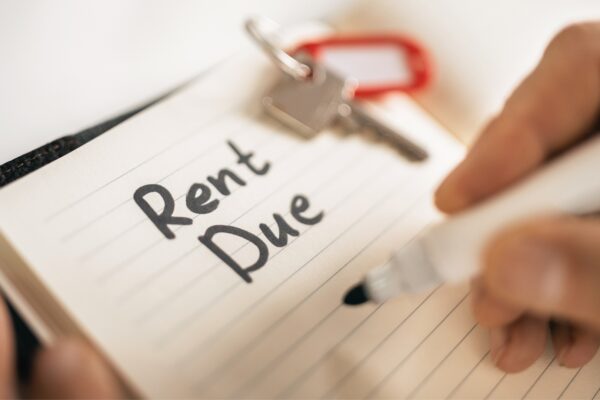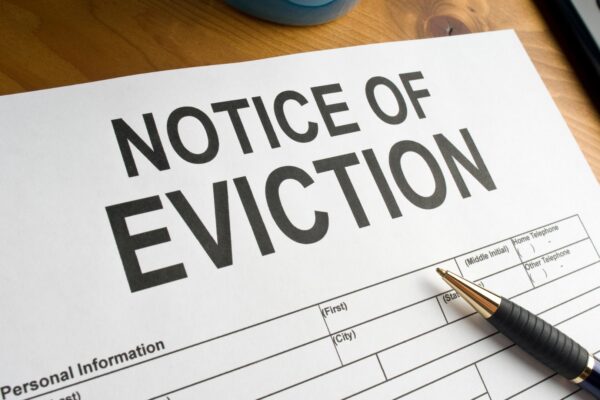The Renters’ Rights Act will bring an end to Section 21 “no-fault” evictions, meaning landlords will no longer be able to evict tenants without giving a reason.
This guide breaks down what the change means for landlords, when it will come into force, and the last date you can serve a Section 21 notice before the new rules kick in.
- When will Section 21 be abolished?
- Can landlords still use a Section 21 notice in 2025?
- How will landlords evict tenants once Section 21 is abolished?
- The main differences between Section 21 and Section 8 evictions
Ensure your Section 21 notice is served correctly and legally with our free notice-serving tool. Serve Notice Today
When will Section 21 be abolished?
Section 21 “no-fault” evictions will be officially abolished on 1st May 2026, when the first phase of the Renters’ Rights Act implementation begins. This marks the start of the new tenancy framework in Chapter 1, Part 1 of the Act.
Why does the government want to scrap it?
Labour wants to abolish Section 21 as part of a wider effort to make renting more secure for tenants. The concern is that “no-fault” evictions can leave tenants feeling vulnerable, as they might be asked to leave without explanation – or even as a form of retaliation. This can make it harder for tenants to challenge poor housing conditions or assert their rights.
The goal of removing Section 21 is to give tenants greater stability and confidence, allowing them to plan ahead without fear of eviction on informal or arbitrary grounds.
At the same time, the proposed reforms would strengthen the grounds for possession under Section 8, ensuring landlords still have a clear legal route to regain their property when necessary.
However, many landlords are worried about losing Section 21. They see it as an important tool for quickly regaining possession, particularly when dealing with difficult tenants.
Relying more heavily on Section 8 could also make evictions more complicated and time-consuming, potentially increasing risks, costs, and administrative burdens.
You might also be interested in…
- When Will Section 21 Be Scrapped?
- 5 Mistakes Tenants Make in Their Property Enquiries (and How to Fix Them)
- What Tenants Need to Know About the Renters’ Rights Act
- 6 Most-Viewed Properties of the Month
- Landlord Checklist: How to Prepare Your Property for Winter
Can landlords still use a Section 21 notice in 2025?
Yes, landlords can still serve a Section 21 notice to end a tenancy, as the Renters’ Rights Act hasn’t yet come into force.
However, for your Section 21 notice to be valid, it’s important to ensure you’ve met all your legal obligations. This includes things like protecting your tenant’s deposit in a government-approved scheme and providing them with a gas safety certificate, among other requirements.
To help avoid any mistakes, we recommend using our easy-to-use notice-serving tool, which will generate a Section 21 notice PDF and email it directly to each tenant at the property. This will save you time and ensure everything is done correctly.
When is the last day to serve a valid Section 21 notice?
Landlords will only be able to serve a valid Section 21 notice up until the Commencement Date of the Renters’ Rights Act on 1st May 2026.
This makes the last day to serve a notice Thursday, 30th April 2026, in line with standard office hours and usual legal practice. Any notice served after this date will no longer be valid.
If you’ve already served a Section 21 notice before the Commencement Date, it will remain valid, but you must apply to the court for possession within the following time limits:
- If the notice was served less than three months before the Commencement Date, you’ll have three months from the Commencement Date to make your court application.
- If it was served more than three months before, you’ll need to apply within six months of serving the notice, or within three months after the Commencement Date (whichever comes first).
Staying within these timeframes is critical to ensure the notice remains valid and enforceable.
How will landlords evict tenants once Section 21 is abolished?
Without Section 21, landlords will need to rely on the existing Section 8 framework to evict tenants.
However, with Section 8, landlords must provide a valid reason for seeking possession of their property, such as rent arrears, anti-social behaviour, or the need to move back in themselves, among other things. These reasons are based on specific legal grounds, which are split into mandatory and discretionary.
The Renters’ Rights Act will bring forth several revisions to the existing grounds for possession under Section 8, along with the introduction of new grounds. One such change is a new mandatory ground that will allow landlords to obtain an order for possession if they intend to sell the property.
Enjoy transparent pricing, reliable tenants, and a seamless letting process. Create Advert Now
The main differences between Section 21 and Section 8 evictions
A Section 21 notice (officially known as Form 6A) is a formal notice a landlord can serve to bring an assured shorthold tenancy (AST) to an end.
Often referred to as a “no-fault” eviction, it allows landlords to regain possession of their property without needing to give a reason, provided the correct process is followed and notice periods are met.
However, once the Renters’ Rights Act comes into force on 1st May 2026, Section 21 notices will no longer be available. Landlords will instead need to rely solely on Section 8 notices to end tenancies.
The key difference is that a Section 8 notice requires the landlord to give a valid reason for seeking possession – such as rent arrears, anti-social behaviour, or a landlord needing to move back in – based on one or more legal grounds. These grounds are split into mandatory and discretionary.
In addition, every Section 8 eviction must go through the courts. This has raised concerns in the sector about increased pressure on an already stretched court system once Section 21 is removed.
That said, it’s worth keeping some perspective. According to the latest English Private Landlord Survey, just 6% of tenancies ended through eviction in 2024, and not all of those involved Section 21 notices. For the majority of landlords, tenancies still end by mutual agreement or through other means.



